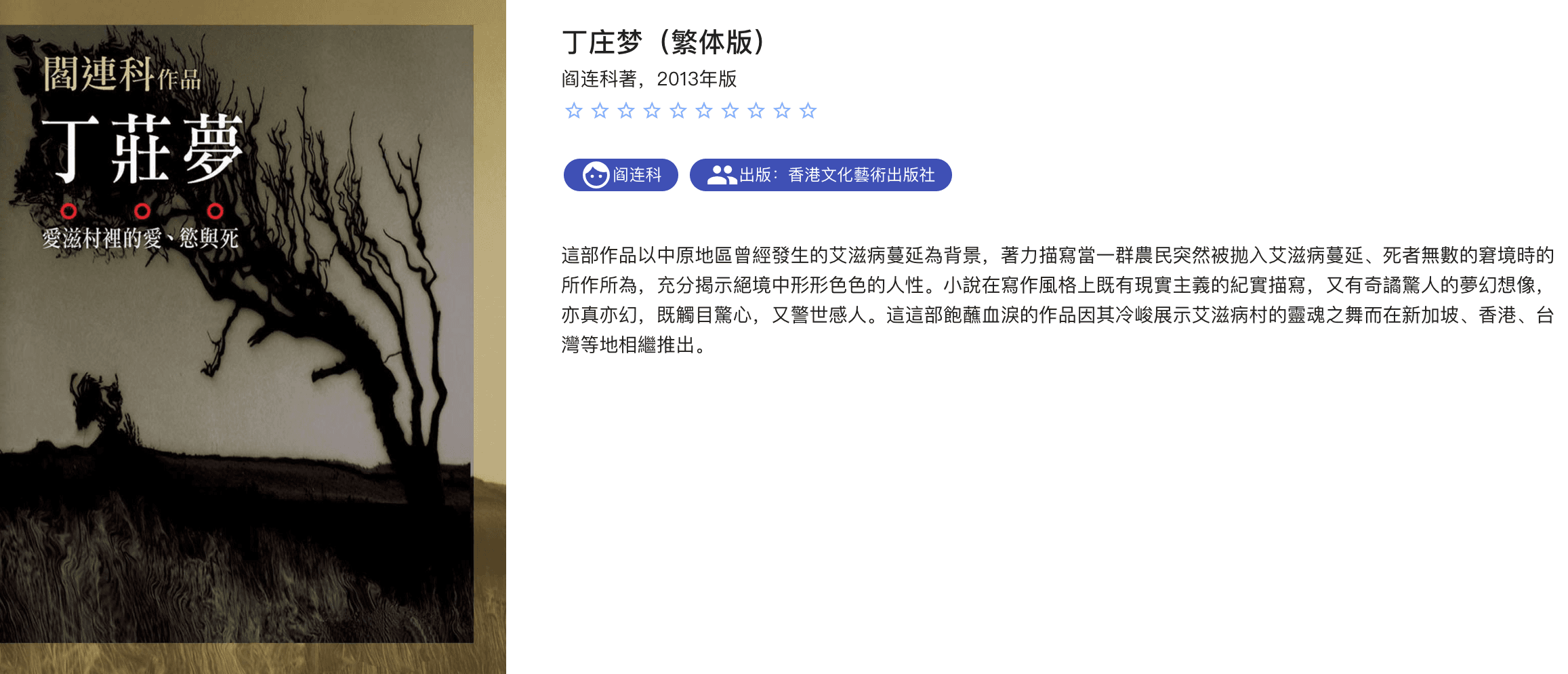
Recently, I have read some works by Yan Lianke, and this novel, "The Dream of Dingzhuang," is one of them.
It is said that the novel is based on an AIDS village in Henan Province and tells the tragic story of ignorant villagers in a place called Dingzhuang who make money by selling blood, resulting in a large number of villagers being infected with AIDS.
The book depicts the ignorance of the villagers:
"Hey, wife, I'm also going to sell blood." "That's great, now you're like a man."
The book portrays the devastation caused by AIDS:
The paulownia tree used for making coffins was cut down, the old carpenter strained his back, and the person making funeral wreaths developed more than a dozen blisters.
It took me five hours to intermittently finish reading this book, and it's quite a long novel. In the afterword, Yan Lianke wrote that after finishing this book, he urgently needed someone to talk to, but there was no one to listen. So he ate a bowl of instant noodles, lay down, and fell asleep, waking up the next day. Perhaps because he had been immersed in this absurd story for a long time, he suddenly reached the end and was exhausted, just like finishing a long-distance race.
In the introduction to "Serve the People," he said that the trouble caused by that book made him hesitate, otherwise he could have written it better. Now he has only written seventy percent of it.
To be honest, as a reader who has just finished reading "Serve the People," I believe what he said. Even for me, this book is only sixty percent, because besides being hesitant, it also has too many formalities and writing techniques, for example:
Just buried Ma Xianglin. Just buried.
And also:
After three to five days, three to five days, everyone was calm in school, calm and peaceful.
This kind of sentence structure appears countless times in the novel, making it annoying and greatly affecting the reading experience—if you have seen "The Sequel to Journey to the West," where an action is repeatedly edited, that is the feeling I had while reading. In comparison, "Serve the People" is concise enough, with just the right story and no dragging characters. Although "The Dream of Dingzhuang" is long, there are not many well-developed characters... It's a good story framework that could have been written better, which is a bit of a pity.
By the way, this book has been banned in mainland China, and no one knows the specific reason, just like many things that have disappeared now, we don't know why they have disappeared.
Interestingly, I rewatched "To Live" over the weekend, and I think both books are very tragic, but "The Dream of Dingzhuang" is banned while "To Live" is still thriving. Perhaps it's because the former portrays the tragedy and evil of a group, while the latter portrays the tragedy of an individual; the former is filled with absurdity and tragedy, while the latter has a sense of optimism amidst continuous tragedy.
In this regard, it is understandable why it has been banned. After all, everyone hopes for something positive.